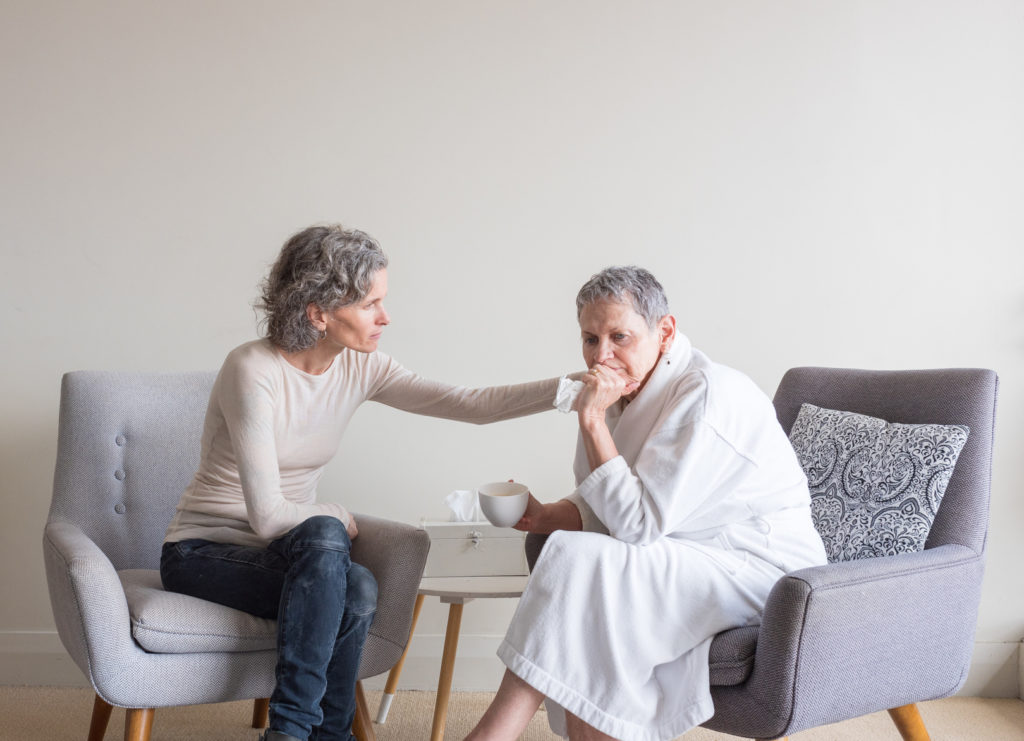

Anyone who’s ever experienced a headache (or even worse, a migraine) understands how painful and frustrating the ailment can be. Experts say that seniors experience fewer headaches than younger adults, however headaches and migraines are still common amongst seniors. According to WebMD, statistics support that claim – young adults aged 21 through 34 reported headaches are prevalent in their lives at a rate of 92% amongst women and 74% amongst men. On the other hand, seniors aged 75 and older reported a rate of 55% amongst women and 21% amongst men.
While it’s been widely proven that headaches and migraines decrease with older age, they can still be a cause for concern amongst seniors and their caretakers. Oftentimes, headaches and migraines (especially chronic headaches and migraines) can be a sign of a more severe underlying condition for older generations.
Underlying Medical Causes of Headaches for Seniors
Anyone who has taken care of an older family member or is involved in senior care or elderly care knows the challenges that come along with monitoring and maintaining their charges’ various health conditions. All ailments that seniors experience, no matter how minor, need to be tracked and followed up on, and that includes headaches and migraines. Here are some of the underlying conditions that are associated with reports of frequent headaches and migraines amongst seniors:
- Medication Overuse. As people get older, they experience a gradual increase in body pains. As a result, doctors often prescribe pain medication to their senior patients for relief. The pain medication may relieve certain aches temporarily, but overuse can lead to rebound headaches, more painful headaches that return with higher frequency.
- Medication Side Effects. Headaches and migraines can also occur as side effects to other types of medication that seniors are prescribed to.
- Cerebrovascular Disease. Headaches can be a sign of an impending stroke. According to WebMD, more than half of all seniors who have suffered from strokes reported experiencing painful headaches leading up to it.
- Head Trauma. It’s no secret that seniors, as they slowly lose their balance with age, tend to fall quite often. Particularly bad falls can result in brain traumas and the result can be a heavy uptick in headaches and migraines. If you are caring for an elderly family member, you need to stress that it’s important for that person to report any falls to their caretaker.
- Trigeminal and Postherpetic Neuralgia. Nerve issues, such as trigeminal neuralgia, can create an inordinate amount of pain in the face, especially around the nose and the eyes. Postherpetic neuralgia is a nerve issue that stems from shingles that also causes nerve flare-ups within and around the face.
Migraines and Headaches – What’s the Difference?
Headaches are uncomfortable pains in your head that stem from stress, anxiety, and muscle strains. They typically dissipate after a few hours, and there are very few symptoms outside of the actual pain itself.
Migraines, on the other hand, are a bit different. Migraines are typically more painful, last longer, and come along with some symptoms that are not typically present in a standard headache. These symptoms include nausea-induced vomiting, loss of vision, light sensitivity, and seeing spots or flashing lights.
Being able to distinguish between a migraine and a headache is important – it can be helpful information for a medical professional who is trying to make an accurate diagnosis of the issue at hand.
Headache Management Tips
Despite how agonizing and demoralizing a bad string of headaches or migraines can be for seniors, there is hope – a few lifestyle changes can make all the difference when dealing with headaches and migraines. Here are a few tips for seniors to remember:
- Sleeping, Eating, and Exercising: Getting enough sleep, eating three healthy meals a day, and staying physically active can play a huge role in reducing headaches and the pain that comes with them.
- Decrease Stress Levels: Stress, especially emotional stress, can cause tension in your head and in your neck and back muscles. Seniors should do everything in their power to keep their stress levels low.
- Avoid Things that Prompt Headaches: If a senior finds her- or himself constantly being triggered by certain things like bright lighting or booming noises, or even too much exposure to alcohol, caffeine, or certain food types, they should make an attempt to avoid them.
- Rest and Relaxation. Elderly people need to spend time recuperating and relaxing their bodies. Regularly scheduled rest and relaxation times can be essential for body recovery and maintaining low stress levels.
Headache management and migraine management for seniors matters, as does senior care in general. At Assisting Hands Home Care, we understand seniors’ needs and offer a variety of elderly home care services. We make it our mission to offer the best possible care, comfort, and support for our seniors – they deserve only the best and we offer nothing short of the best for your senior loved ones.
